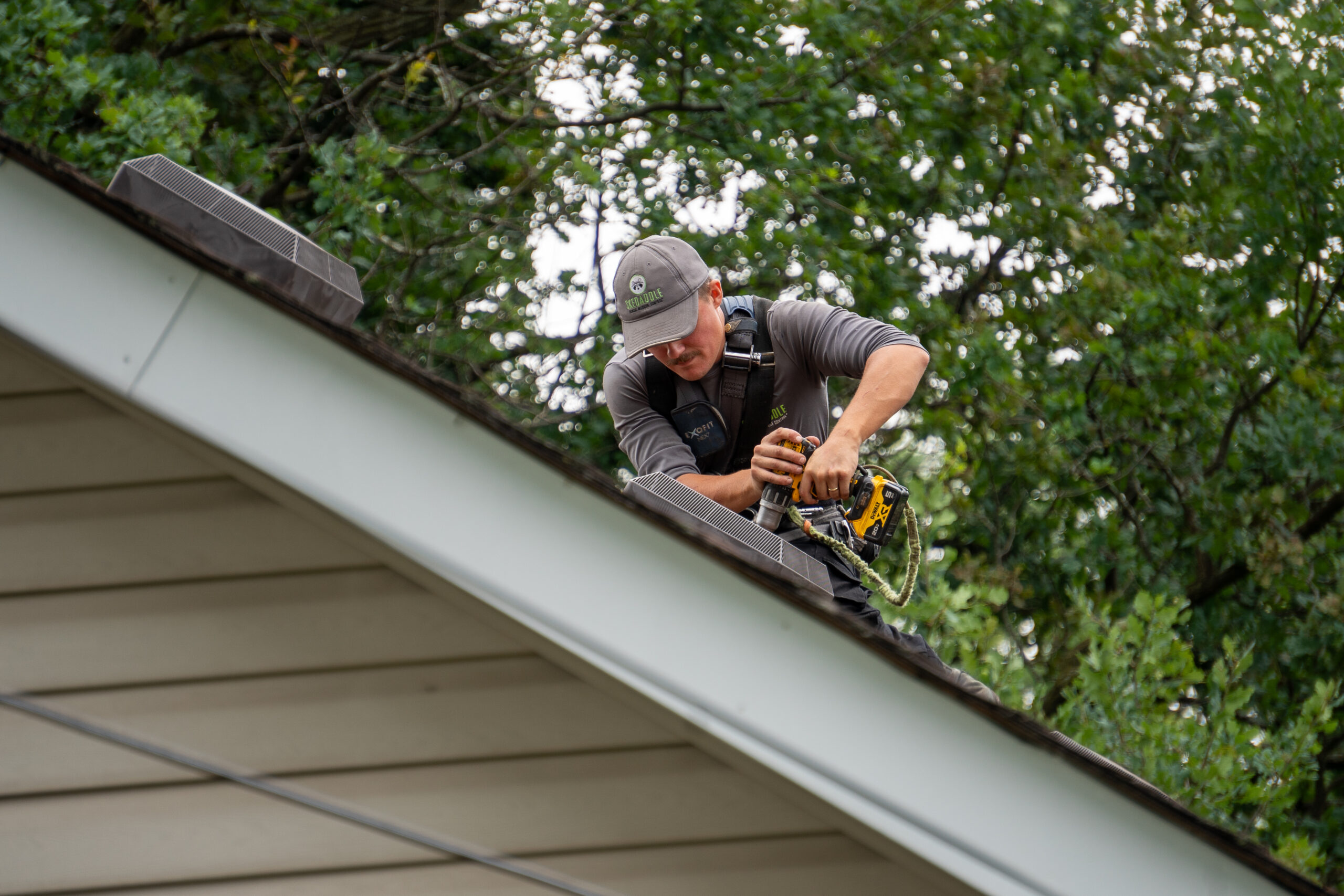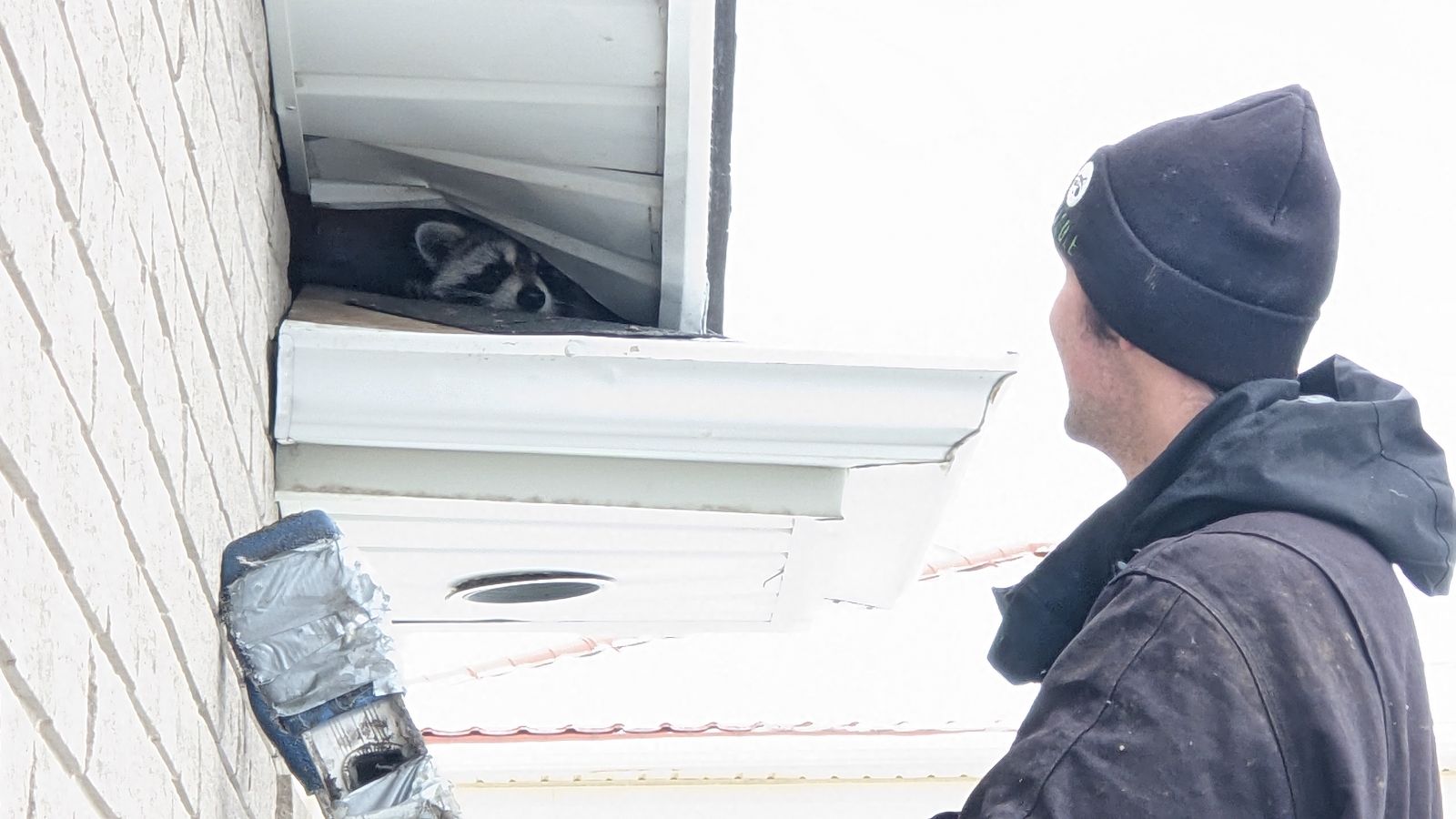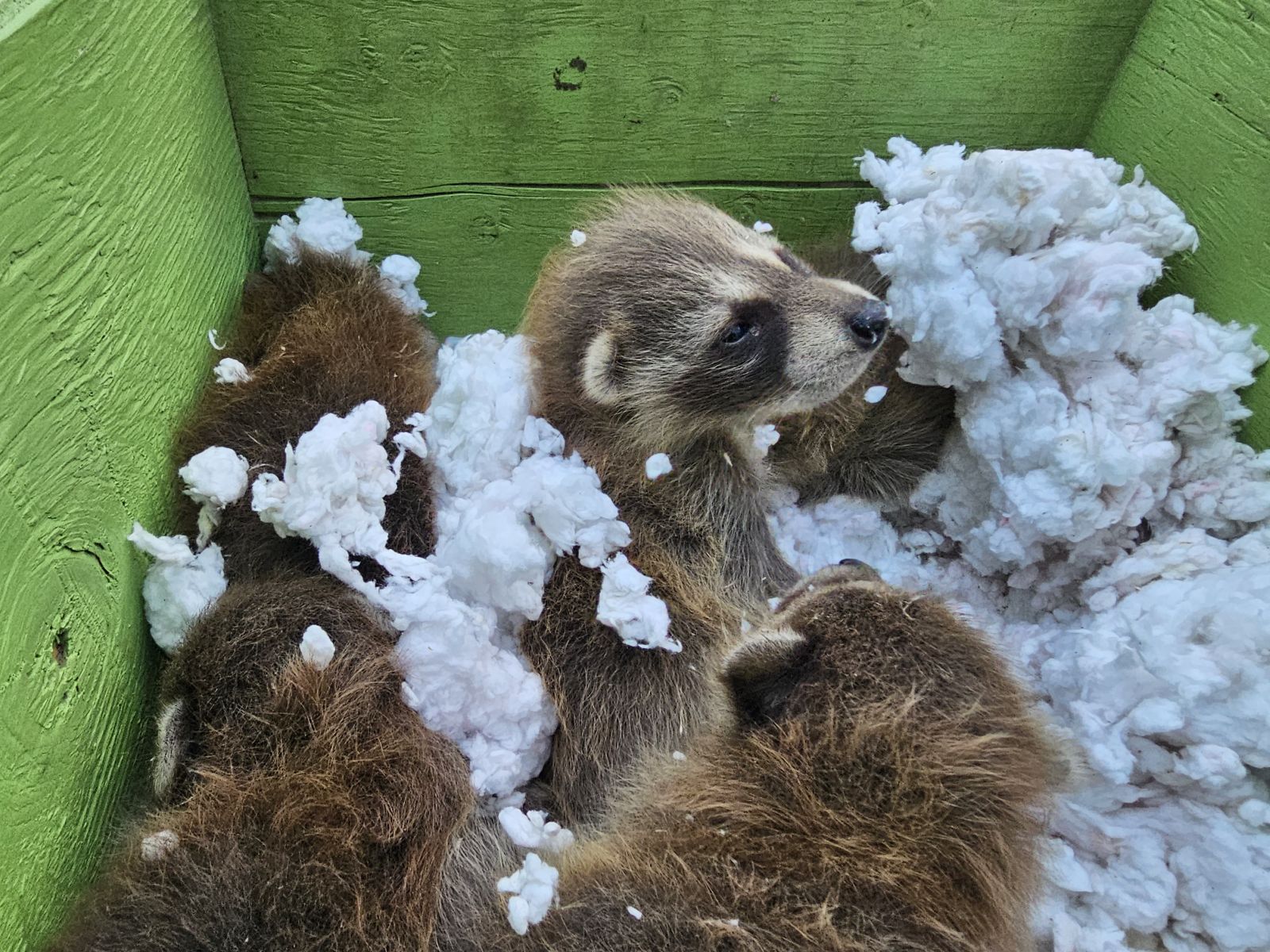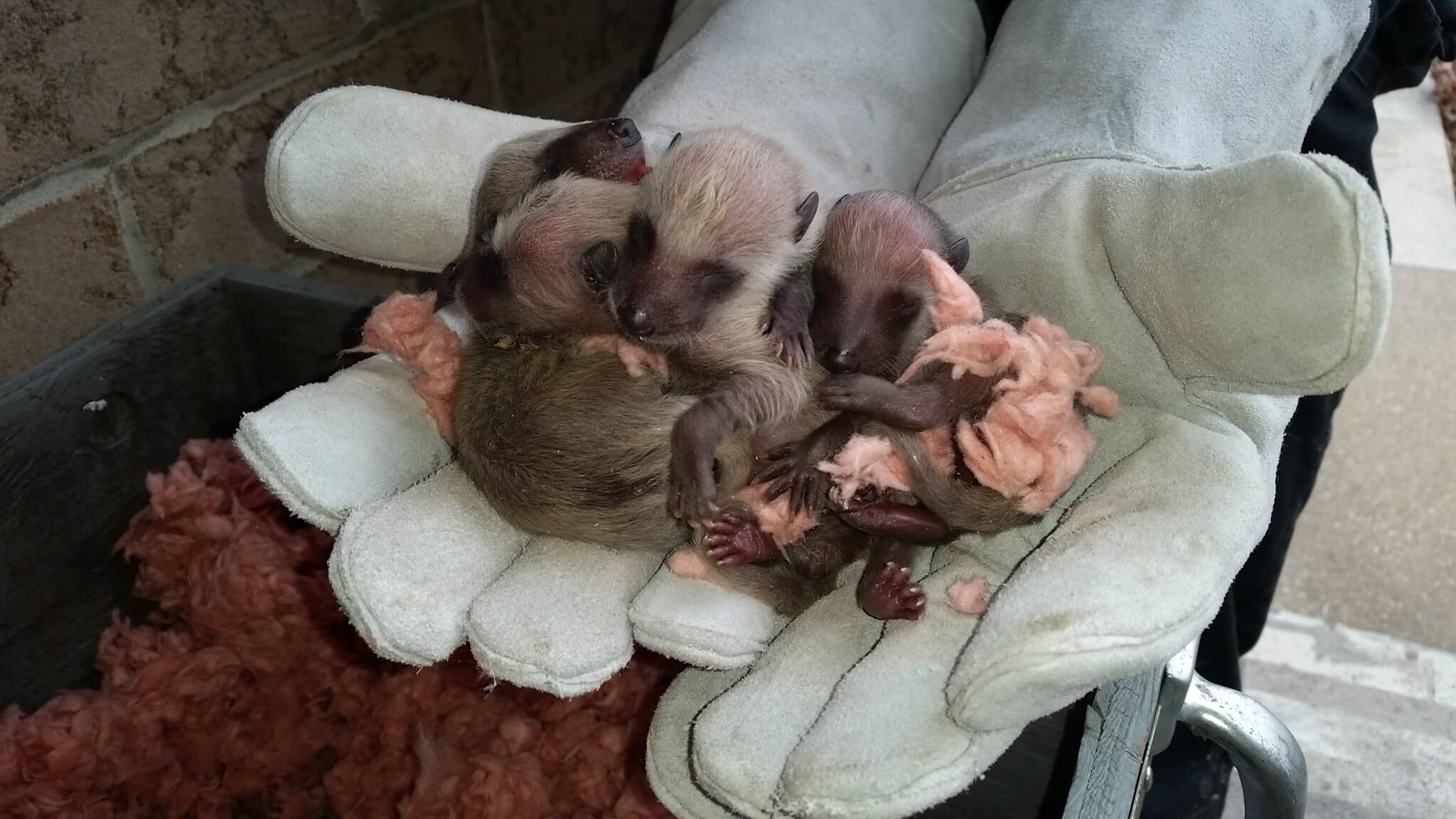RACCOON REMOVAL PROCESS
Assess and Remove
Raccoons are very intelligent and resourceful. This is why our 50 point inspection is designed to identify all current and potential raccoon entry points as well as any damage they may have caused. Our hands-on removal techniques are both humane and effective for adult and baby raccoons alike.
Clear and Clean
Raccoons are not very clean and their presence can lead to severe property damage. Skedaddle offers thorough cleaning and disinfecting of raccoon den sites to eliminate any health risks. We can also remove and replace any damaged attic insulation.
Prevent and Protect
Once the raccoons are gone you want to make sure your home is protected against future entries. Our wildlife technicians are experts in identifying and securing vulnerable areas of your home with exclusion materials that are built to last.
Montreal Raccoon Control
Are you dealing with unwanted raccoon guests in your home? Our expert team at Skedaddle Humane Wildlife Control Montreal is here to provide you with efficient, humane, and comprehensive raccoon removal services. Serving Montreal and surrounding areas, we specialize in safely removing raccoons from your property while ensuring their well-being and protecting you from future intrusions.
Why Raccoon Removal Matters in Montreal
Montreal, known for its vibrant neighbourhoods and lush green spaces, is also home to a diverse wildlife population, including raccoons. While these masked bandits may seem charming from afar, having them invade your home can lead to a host of problems. Raccoons are notorious for causing damage to property, spreading diseases, and creating unsanitary living conditions. Additionally, they can pose a threat to your family and pets.
Raccoons are highly adaptable and can be found in the most urban and densely populated sections of downtown Montreal as well the surrounding suburbs. They are excellent climbers and often make their home inside the attics of houses. They are mostly nocturnal and will usually be heard at night as they explore the attic or when they exit or return from foraging for food in the neighbourhood. They trample attic insulation which destroys its effectiveness and the entry points they create can lead to water infiltration into your house.

How Do Raccoons Get into Houses?
When it comes to finding shelter raccoons can best be described as opportunistic. Raccoons will den inside attics and chimneys but they are also comfortable at ground level below decks, cabanons and porches. They only need a small opening to invite themselves inside and they have the smarts, dexterity and strength to damage many of the building materials commonly used to construct homes in Montreal. In addition to causing entry, they will also take advantage of openings on homes resulting from age and deterioration from weather.
How raccoons might enter an attic depends on the construction of the home and its condition. There are as many possibilities as there are houses in Montreal but some of their most common entry points include:
Roof Vents: Many homes in Montreal have flat roofs that are built with vents to allow for airflow in the ceiling cavity. These vents are rarely visible to the ground but they are a common entry point for raccoons that traverse the city along rooftops. The airflow from the vents tells raccoons that there is warmth and shelter on the other side and they damage the flimsy aluminum vent covers to get inside.
Soffits: Most homes in Montreal’s suburbs are constructed with a soffit overhang which is used for aesthetic and waterproofing purposes. Nowadays soffits are made from aluminum and are not built or installed to withstand being pushed on and manipulated by determined raccoons. Just a bit of thin aluminum held together with tiny screws stands between a raccoon and your attic space.
Roof Decking: Raccoons rarely enter attics through new roofs that are well-built and in good condition but they can damage shingles and tear through roof decking that are past their best. Montreal’s extreme weather is hard on roofs and snow and ice can lead to roof damage that might not be easy to see from the ground. It only takes a clogged gutter or a winter ice dam to lead to an opening for raccoons.

Our Humane Raccoon Removal Process
At Skedaddle, we understand the importance of coexisting with wildlife while ensuring the safety and well-being of our clients. Our humane raccoon removal process begins with a thorough inspection of your property to identify entry points and assess the extent of the infestation. Using humane removal techniques, we safely evict raccoons and prevent their re-entry.
Humane raccoon removal becomes all the more important during the spring and summer birthing seasons. Female raccoons give birth to litters of two to six babies each spring. The first litters arrive in Montreal by March and babies continue to be found inside homes and attics through to June. Baby raccoons are born with their eyes closed, and are not mobile for months after birth, meaning there is no way to trap them. The only way to remove a raccoon mother and her babies from your attic is by hand.
Skedaddle specializes in locating and removing baby raccoons from the hard to reach areas of homes and then returns them to their mother on the outside once we’ve secured her entry points. With her pathway to the den blocked, the mother raccoon must then relocate her babies to one of her other den sites in the area.
Raccoons Through the Seasons in Montreal
Montreal’s climate varies dramatically throughout the year, and so does raccoon behaviour. In the spring and summer months, female raccoons are busy raising their young and foraging for food. This is the busiest time of year for raccoon activity as mothers seek out secure den sites like attics, sheds, porches, crawl spaces and chimneys to have their babies.
Raccoons remain active through fall, bulking up for the winter ahead and perhaps dividing their time among a number of den sites in any given area. As the temperatures drop they will look to establish a winter den site and will exit to forage less frequently. During Montreal’s long winters they are capable of spending weeks on end holed up in a cozy attic without the need to leave for food.

Comprehensive Clean-Up and Exclusion Services
Our commitment to providing top-notch service doesn’t stop at removal. We also offer comprehensive clean-up and exclusion services to ensure that your home remains raccoon-free. Our skilled technicians will thoroughly sanitize and decontaminate the affected areas, removing any feces, urine, or soiled building materials left behind.
To prevent future infestations, we implement effective exclusion techniques, such as sealing entry points, installing barriers, and reinforcing vulnerable areas of your home. By addressing the root cause of the problem, we help you safeguard your property against future wildlife intrusions. We can’t get rid of all the raccoons in Montreal but we can raccoon-proof your home so you have peace of mind for years to come.
Trust Montreal Wildlife Removal for Your Raccoon Removal Needs
When it comes to raccoon removal in Montreal, trust the experts at Skedaddle to get the job done right. With decades of experience and a commitment to humane practices, we’re dedicated to providing you with top level customer service delivered by honest and reliable technicians. Don’t let raccoons wreak havoc on your property any longer—contact us today to schedule your consultation and take the first step toward a raccoon-free home!
Raccoon Facts
FACT:
Raccoons do not hibernate in the traditional sense of the word during winter. During mild winter spells they will become active to mate or forage for food. They do have the ability to enter into a state of torpor, to help conserve energy, during especially cold stretches of winter.
FACT:
Raccoons are excellent climbers allowing them to easily scale their way up to the rooftops of homes. Downspouts, trees and staircases are common avenues they take to get to roofs. They typically climb down from heights head first with the help of hind feet that turn backwards.
FACT:
Raccoons are omnivores meaning they will consume just about anything. Not having to depend on any particular diet helps raccoons to survive in urban environments where food sources are always changing.
FACT:
Raccoons are mostly nocturnal although mother raccoons during spring can often be seen out during daylight hours. A litter of babies tends to disrupt their normal patterns. In cities, where they have no natural predators, automobiles are their greatest threat.
FACT:
Raccoon population densities vary by habitat. Urban areas can often support large numbers of raccoons when there is abundant food and shelter. Mount Royal Park was once home to hundreds of raccoons, more than that the area would support naturally, in large part due to park goers feeding raccoons. Fines and added signage discouraging feeding wildlife have been introduced to help protect the public and raccoons.
CHECK OUT OUR LATEST BLOGS
Daytime Raccoon Sightings: What They Mean and How to Respond Safely
Raccoon Latrine Cleanup: Essential Steps for a Safe Home
Montreal Wildlife Removal: How to Deal with a Raccoon Nesting in Your Chimney
Why Do Raccoons Keep Pooping In Your Yard?
Taking a Look at the Daily Activities of Raccoons



